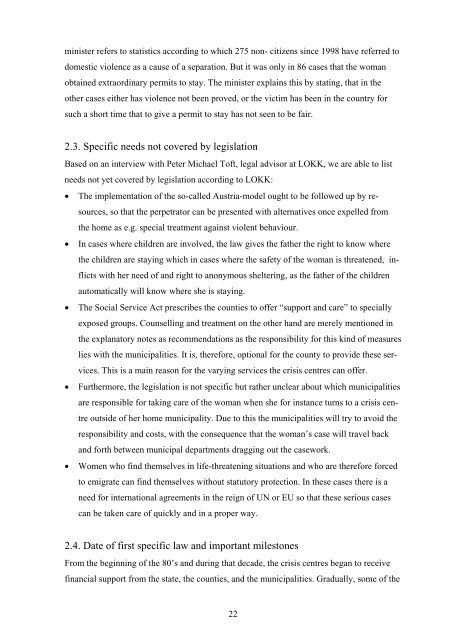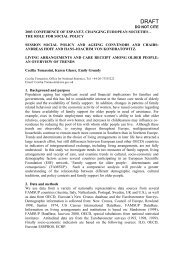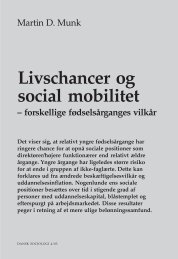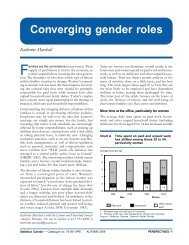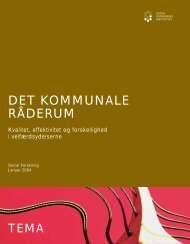Shelters in Denmark For Battered Women - European Commission
Shelters in Denmark For Battered Women - European Commission
Shelters in Denmark For Battered Women - European Commission
Create successful ePaper yourself
Turn your PDF publications into a flip-book with our unique Google optimized e-Paper software.
m<strong>in</strong>ister refers to statistics accord<strong>in</strong>g to which 275 non- citizens s<strong>in</strong>ce 1998 have referred to<br />
domestic violence as a cause of a separation. But it was only <strong>in</strong> 86 cases that the woman<br />
obta<strong>in</strong>ed extraord<strong>in</strong>ary permits to stay. The m<strong>in</strong>ister expla<strong>in</strong>s this by stat<strong>in</strong>g, that <strong>in</strong> the<br />
other cases either has violence not been proved, or the victim has been <strong>in</strong> the country for<br />
such a short time that to give a permit to stay has not seen to be fair.<br />
2.3. Specific needs not covered by legislation<br />
Based on an <strong>in</strong>terview with Peter Michael Toft, legal advisor at LOKK, we are able to list<br />
needs not yet covered by legislation accord<strong>in</strong>g to LOKK:<br />
• The implementation of the so-called Austria-model ought to be followed up by resources,<br />
so that the perpetrator can be presented with alternatives once expelled from<br />
the home as e.g. special treatment aga<strong>in</strong>st violent behaviour.<br />
• In cases where children are <strong>in</strong>volved, the law gives the father the right to know where<br />
the children are stay<strong>in</strong>g which <strong>in</strong> cases where the safety of the woman is threatened, <strong>in</strong>flicts<br />
with her need of and right to anonymous shelter<strong>in</strong>g, as the father of the children<br />
automatically will know where she is stay<strong>in</strong>g.<br />
• The Social Service Act prescribes the counties to offer “support and care” to specially<br />
exposed groups. Counsell<strong>in</strong>g and treatment on the other hand are merely mentioned <strong>in</strong><br />
the explanatory notes as recommendations as the responsibility for this k<strong>in</strong>d of measures<br />
lies with the municipalities. It is, therefore, optional for the county to provide these services.<br />
This is a ma<strong>in</strong> reason for the vary<strong>in</strong>g services the crisis centres can offer.<br />
• Furthermore, the legislation is not specific but rather unclear about which municipalities<br />
are responsible for tak<strong>in</strong>g care of the woman when she for <strong>in</strong>stance turns to a crisis centre<br />
outside of her home municipality. Due to this the municipalities will try to avoid the<br />
responsibility and costs, with the consequence that the woman’s case will travel back<br />
and forth between municipal departments dragg<strong>in</strong>g out the casework.<br />
• <strong>Women</strong> who f<strong>in</strong>d themselves <strong>in</strong> life-threaten<strong>in</strong>g situations and who are therefore forced<br />
to emigrate can f<strong>in</strong>d themselves without statutory protection. In these cases there is a<br />
need for <strong>in</strong>ternational agreements <strong>in</strong> the reign of UN or EU so that these serious cases<br />
can be taken care of quickly and <strong>in</strong> a proper way.<br />
2.4. Date of first specific law and important milestones<br />
From the beg<strong>in</strong>n<strong>in</strong>g of the 80’s and dur<strong>in</strong>g that decade, the crisis centres began to receive<br />
f<strong>in</strong>ancial support from the state, the counties, and the municipalities. Gradually, some of the<br />
22


